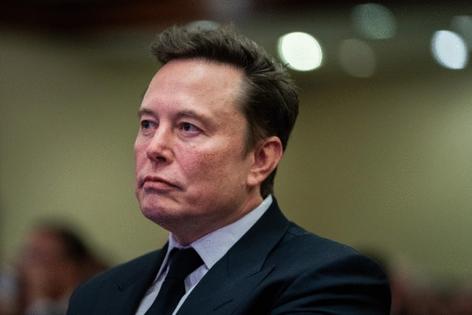Noah Feldman: Musk and his critics are both wrong about free speech on X
Published in Op Eds
Elon Musk is in a free-speech fight over his decision to demonetize the content of some far-right MAGA critics who disagreed with his immigration views on his social media platform X. What is most remarkable about the argument is that both sides fail to acknowledge the simple truth of how speech, free or otherwise, works on social media. It’s worth taking a moment to clarify what free speech means in the context of those platforms.
The most fundamental fact about speech on social media is that it takes two to tango: the user and the platform. You, the user, produce the content — commonly described in the industry as UGC, for user-generated content. The platform takes that content and, using its algorithm, sends it out to other users, your audience.
Both actors are essential, and both are necessarily working in tandem. Nothing would be said on social media without the user to produce content. No one would know what you said without the platform to publish the content. Hence, every act on a platform necessarily combines your speech with the platform’s choice of what to distribute.
Compare this structure to legacy media, like the column you’re reading. I wrote it, and Bloomberg published it. Both the company and I are speaking to you jointly right now. The difference between legacy media and social media is that Bloomberg hired me to write the column, whereas, on social media, you provide your content in exchange for the chance to have it distributed by the platform.
As a matter of black-letter, First Amendment constitutional law, I am in this column exercising my free-speech rights — and so is Bloomberg. That means the government could not censor this column without violating my First Amendment rights and Bloomberg’s. Similarly, the government could not censor your speech on social media without violating your First Amendment rights and the platform’s. (The platform’s First Amendment right to curate and publish your content was established last June by the Supreme Court in the landmark Moody v. NetChoice case.)
So, when the MAGA folks claim that X has violated their free speech rights by taking away their ability to monetize their content, they aren’t using the concept of free speech in a constitutionally accurate way. They don’t have a constitutional right to free speech that they can exercise against Musk or X. The platform can choose to de-platform them, and they couldn’t invoke the First Amendment to get back on the platform. Indeed, if the government tried to say that X had to re-platform them, that effort would violate X’s First Amendment rights under the NetChoice decision.
The MAGA users can plausibly say to Musk that by taking away their ability to monetize their content, he is violating a non-legally binding commitment he made to allow users to express any point of view on the platform with censorship. To the extent that Musk promised that sort of non-legal, non-constitutional “free speech” on X, he’s broken the rules.
Musk, for his part, has no leg to stand on when he says that “the First Amendment’s protection is for ‘free speech,’ not ‘paid speech’ ffs.” If X were the government (which it isn’t), and the First Amendment applied to it (which it doesn’t), the government would not be allowed to punish some speakers by taking away an opportunity — like monetization — based on the speakers’ point of view. Imposing such a punishment would count as an unconstitutional condition on free speech. It certainly would violate the First Amendment, “ffs” (as Musk would say).
Put another way, if Musk were serious about voluntarily applying First Amendment principles on X, he wouldn’t demonetize speakers based on not liking what they say.
Of course, Musk is not applying First Amendment free speech principles to his platform. If he wants to allow diverse viewpoints on X, that’s fine — and it’s his First Amendment right as the owner of X. But he hasn’t committed to following the same highly restrictive rules that would apply to him if he were the government.
The upshot is that if we want to be honest and accurate, we should recognize that free speech on social media means the First Amendment right of users and the platform to speak jointly and without government censorship. Beyond that, platforms that want to allow for a wide range of perspectives should be clear about what rules they use to moderate speech. Otherwise, we may forget how the new free speech really works — and lose the very First Amendment rights we all hold dear.
____
This column does not necessarily reflect the opinion of the editorial board or Bloomberg LP and its owners.
Noah Feldman is a Bloomberg Opinion columnist. A professor of law at Harvard University, he is author, most recently, of “To Be a Jew Today: A New Guide to God, Israel, and the Jewish People."
_____
©2025 Bloomberg L.P. Visit bloomberg.com/opinion. Distributed by Tribune Content Agency, LLC.




























































Comments